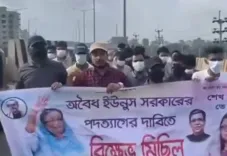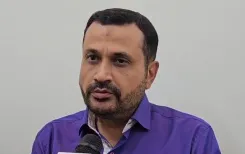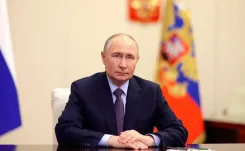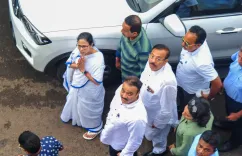Did FATF Condemn the Brutal Pahalgam Terror Attack?
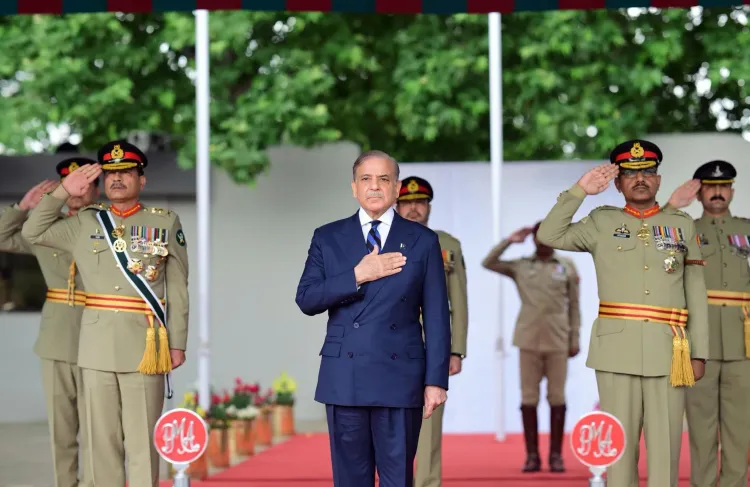
Synopsis
Key Takeaways
- The FATF condemned the Pahalgam attack for its financial backing.
- 26 tourists were killed in the April 22 incident.
- The Resistance Front (TRF) claimed responsibility for the attack.
- India has highlighted the TRF's role in financing terrorism to the UN.
- Global cooperation is essential in combating terrorism.
Paris/New Delhi, June 16 (NationPress) In a significant turn of events, the global Financial Action Task Force (FATF) has expressed strong disapproval of the violent terrorist attack that occurred in Pahalgam on April 22. The FATF emphasized that such horrific acts could not transpire without financial resources and mechanisms to facilitate the transfer of funds among supporters of terrorism.
Terrorist attacks inflict harm, cause injuries, and instill fear globally. The FATF released a statement on Monday following its plenary meeting, expressing profound concern over the brutal incident in Pahalgam on April 22, 2025. This and similar assaults could not materialize without the necessary financial support and the ability to transfer funds among terrorist affiliates,” the FATF statement read.
Additionally, it stated: “As noted by the FATF President during the recent No Money for Terror Conference in Munich, no entity, organization, or nation can tackle this issue in isolation. A collective response is imperative to combat the menace of global terrorism. Terrorists need only succeed once to fulfill their objectives, while we must be vigilant and successful every time to thwart their plans.”
A tragic total of 26 innocent tourists lost their lives in this Pakistan-backed terrorist attack in Jammu and Kashmir's Pahalgam.
Investigations into the attack have unveiled communication networks linking terrorists to Pakistan. The group identifying itself as The Resistance Front (TRF), which is a front for the UN-designated terrorist organization Lashkar-e-Taiba, claimed responsibility for the brutal assault.
India previously provided insights concerning the TRF in its semi-annual report to the United Nations' 1267 Sanctions Committee in May and November 2024, highlighting its role as a facade for terrorist groups based in Pakistan.
Earlier, in December 2023, India informed the monitoring team regarding the activities of LeT and Jaish-e-Mohammad, which operate through smaller terror factions such as the TRF. The Ministry of External Affairs (MEA) pointed out Pakistan's attempts to eliminate references to TRF in the UN Security Council Press Statement on April 25 during Operation Sindoor.
Defence Minister Rajnath Singh has asserted that Pakistan has a history of misappropriating international aid for cross-border terrorism and has called for reinstating the nation on the FATF grey list.
“State and non-state actors in Pakistan are interconnected, a fact evident when known terrorists receive state honors during funerals,” Singh remarked earlier this month.
The FATF, which formulates and advances policies to safeguard the global financial system against money laundering, terrorist financing, and the funding of weapons of mass destruction, has recognized that India has endured the ramifications of terrorism consistently since gaining independence in 1947, facing a diverse array of terrorist threats across various regions.
In an exclusive discussion with IANS, several experts, including former diplomats and counterterrorism professionals, supported decisive actions against Pakistan, advocating for its placement back on the FATF grey list due to its ongoing role in financing terrorism and supporting global terror entities.
Terrorism does not arise spontaneously; it requires funding and a structured approach. Therefore, a comprehensive and coordinated effort is essential to halt the flow of funds into terrorist activities. Pakistan must face consequences for its actions and be placed back on the FATF list,” stated Freddy Svane, the former Danish Ambassador to India, in an exclusive interview with IANS.


